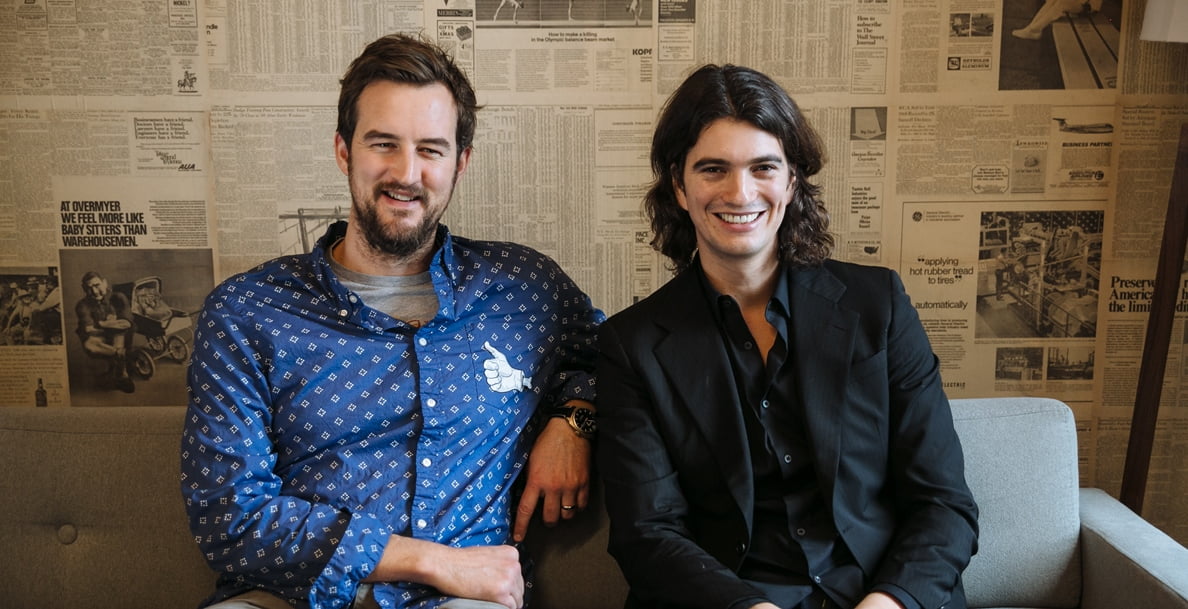In under a decade, the Israeli co-founded company WeWork revolutionized the shared work space community around the globe, going from two locations in New York in 2010 to 178 locations in 56 cities across 18 countries with 150,000 customers by November 2017.
The company, valued at a whopping $20 billion, has also embarked on offshoots, launching WeLive, an urban co-living community that provides furnished apartments, communal spaces and shared amenities, in New York City and Arlington, Virginia. Next came Rise by We, a wellness club and “superspa” also in the Big Apple, that builds on the “We” concept of communal experiences, launched last month.
Now WeWork has set its sights on transforming education. For everyone.
Late last month, it announced that it acquired a private coding school in New York and will launch a private children’s school — WeGrow — for “conscientious entrepreneurs.”
WeGrow by WeWork
The school, for children in kindergarten through fifth grade, is the brainchild of Rebekah Neuman, a founding partner of WeWork, its chief brand officer and the wife of Adam Neumann, the Israeli-born entrepreneur who started the company with Miguel McKelvey.
SEE ALSO: Community And Heart: WeWork Honors Israeli Startups Making a Difference
Neumann, a mother of five children, said she thought of the idea watching her eldest daughter progress through the education system in New York. The kindergarten her daughter attended, she told Fast Company earlier this month, “just wasn’t the right environment” and when she and her husband began looking at grade schools, both in the city and on the West Coast, they “couldn’t find the school that we felt would nurture growth, her spirit as well as her mind.”
“These children come into the world, they are very evolved, they are very special. They’re spiritual. They’re all natural entrepreneurs, natural humanitarians, and then it seems like we squash it all out of them in the education system. Then we ask them to be disruptive and find it again after college,” Neumann said.
“In my book, there’s no reason why children in elementary schools can’t be launching their own businesses,” she told Bloomberg.
Neumann said that within a few months, “we came up with this concept for the pilot class, gathered friends and families, and we launched,” she says of her new school for children in kindergarten through fifth grade.
The pilot class currently has seven children ages five though eight, including one of the Neumann children, and is run out of a school belonging to the Orthodox Jewish Hassidic Movement Chabad in New York.
The children are in a classroom most of the week with two full-time teachers but spend one day on a 60-acre farm owned by the Neumanns for a more “hands-on approach to learning,” she said.
Sign up for our free weekly newsletter
Subscribe“If they are learning math, they are not just sitting in a classroom learning about numbers. They are also using numbers to run their farm stand, they’re reading about natural cycles of plant life,” Neumann explained.
The students also get business lessons from employees as well as entrepreneurs and WeWork clients. “Basically, anything they might want to learn, we have people in the field that can teach it,” she said.
The Neumanns have branded their customers the WeGeneration — a group that “cares about the world, actually wants to do cool things, and loves working,” — and Rebekah says they felt they wanted their children and others’ “to be raised as conscious global citizens of the world, to understand their passions, and know how to use those gifts to help others.”
By next fall, Neumann plans to have the WeWork school operating out of the WeWork headquarters in New York with a separate entrance and enroll 65 students. The company is weighing whether to charge tuition or run WeGrow as a non-profit organization.
Her grand vision, she explains, would be to also move into higher and continuing education and even begin training teachers.
WeCode?
Meanwhile, WeWork is taking on vocational education too, having bought New York’s Flatiron School, which offers a coding bootcamp as well as a number of free and certificate courses, for an undiclosed amount last month. With a 15-week curriculum and $15,000 tuition, the bootcamp offers vocational training and promises well-paying software jobs compared to a four-year degree from which some graduates emerge debt-ridden and unsure about a path forward. WeWork’s move has been called a “bet against college.”
The idea is to incorporate Flatiron’s offerings into most of WeWork’s locations worldwide and allow employees and clients to have access to the courses.
Adam Enbar, a co-founder of Flatiron, says the plan aligns with WeWork’s communal ideology and is superior to on-line colleges because “something is lost when you remove a physical community.”
SEE ALSO: A New Kibbutz? WeWork’s Urban Community WeLive Could Revolutionize City Living
“More than prior generations, people want community at work,” Enbar told Axios last month. “When you imagine education in a space, it starts to make sense. One of the most powerful forms of community is learning.”
Adam Neumann wrote in a blog post after the deal was reached that in Flatiron, WeWork has “found a partner who shares our vision of connecting people — through space, design, technology and community — and understands that those connections are what humanizes the way we work and live. We are all students for life.”
Related posts

Editors’ & Readers’ Choice: 10 Favorite NoCamels Articles

Forward Facing: What Does The Future Hold For Israeli High-Tech?

Impact Innovation: Israeli Startups That Could Shape Our Future







Facebook comments